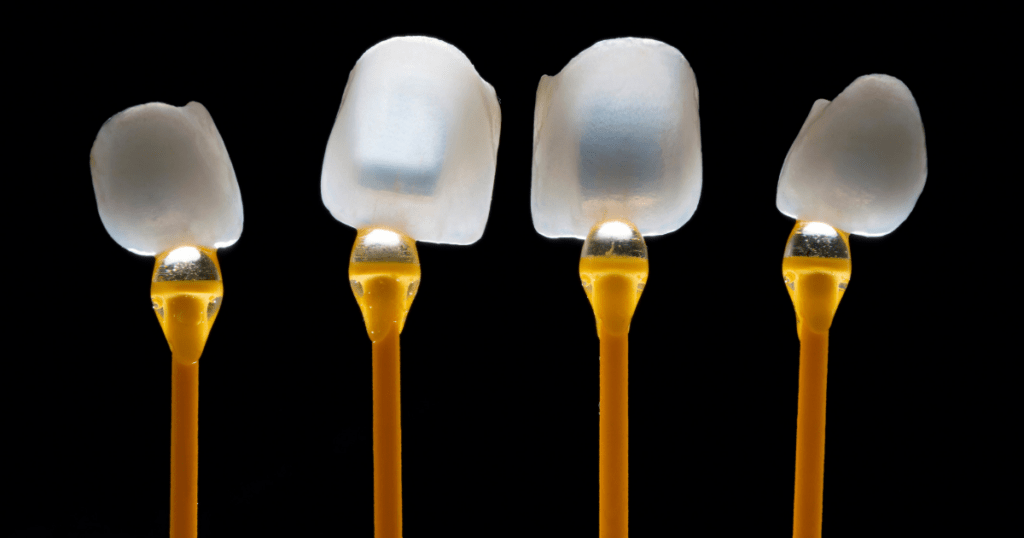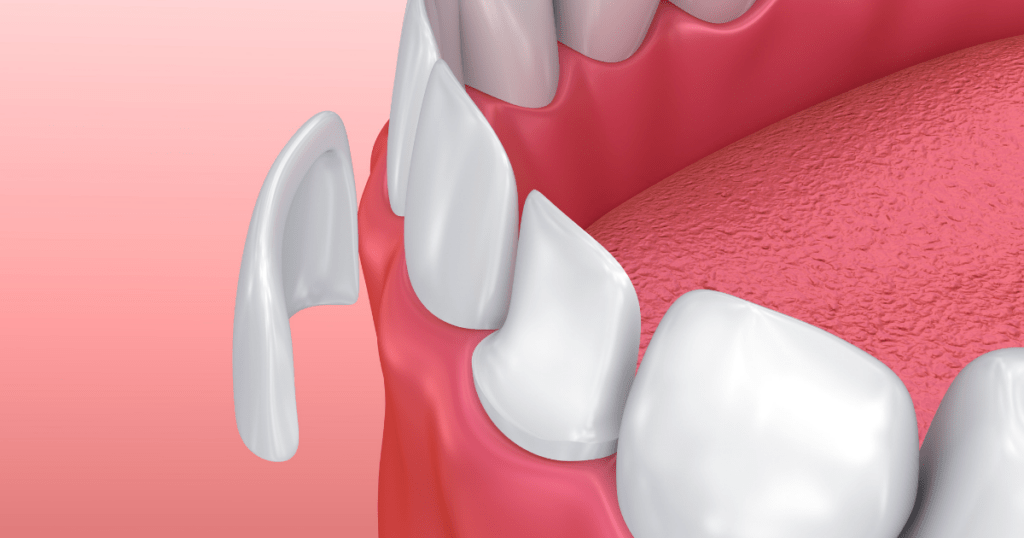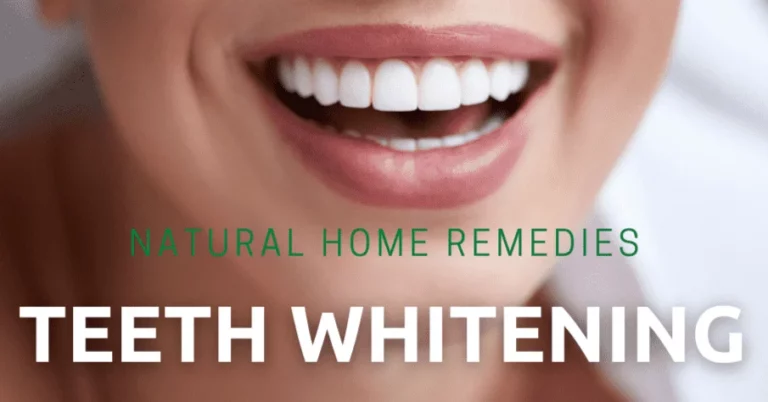Thinking of Getting Dental Veneers: Is it right for you?
What are dental veneers?
Dental veneers are wafer-thin, custom-made shells of tooth-colored materials designed to cover the front surface of teeth to improve their appearance. These shells are bonded to the front of the teeth to change their color, shape, size, or length.
Dental veneers can provide a long-term solution to cosmetic concerns such as crooked, discolored, or smaller-than-average teeth and can also help repair damage such as broken or chipped teeth. They are typically made from either porcelain or resin-composite materials and are permanently bonded to the teeth.

Factors you should consider when deciding on getting dental veneers
If you are considering getting dental veneers, there are a few factors you should take into account before making a decision.
Veneers are a popular choice for many people who want to improve the appearance of their smile. They are also used to protect the teeth from damage and wear.
However, they are not right for everyone. Here are some things you should consider before deciding if dental veneers are right for you:
Need for veneers
Dental veneers are a popular cosmetic solution to various conditions that can diminish a person’s smile over time. They are used to enhance the brightness of the smile, correct discoloration, fix fractures or chips, close gaps, and correct small misalignments.
Type of veneer
When it comes to dental veneers, there are two main types to choose from: porcelain and resin-based composite. Porcelain veneer is more durable and resist staining, while veneers require less tooth reduction or recontouring.
However, Lumineers are also an option, but these are more prone to fractures and chips. Ultimately, the best type of veneer for you depends on factors like your budget, your long-term goals, what you want to achieve, how many teeth are involved, and the health and shape of your current teeth.
Consider all of these factors before scheduling an appointment with your dentist, and make sure to get the right type of veneer for your smile.
Cost of veneers
The cost of dental veneers can vary depending on a few factors, such as the type of veneers, how many you get, and the location of the practice. On average, porcelain veneers cost between $925 and $2,500 per tooth, while no-prep veneers, common veneer applications, and Lumineers cost between $250 to $2,000 per tooth, respectively.
Removable veneers cost around $300 per arch, while palatal onlays can cost between $650-$1,200 per tooth. Insurance does not typically cover veneers, as they are considered a cosmetic procedures. Veneers can generally range from $1,500 to $5,000 per tooth.
Available payment methods
When it comes to dental veneers, there are a variety of payment methods available to help make the treatment more affordable.
For those who don’t want to finance, paying for porcelain veneers out-of-pocket is possible. This option requires the full cost upfront but could benefit those seeking a more cost-effective solution.
Furthermore, different veneers have varying costs, from the more affordable veneers to the more expensive porcelain veneers. Thus, it’s important to understand the differences before selecting which type of veneer will best meet your needs.
No matter what payment method you choose, dental care is committed to helping you achieve a beautiful and healthy smile with dental veneers. We are here to assist you in any way we can.
The complexity of the procedure
Getting dental veneers can be relatively simple if the right type is chosen. The process typically involves several steps, including a consultation and examination phase, selecting the best tooth color, imaging technologies to preview the expected results, tooth preparation, and finally, the placement of the veneers.
Risks involved in getting veneers
Getting veneers is a great way to improve your smile quickly, safely, and effectively, but risks are involved. Traditional porcelain veneers, such as porcelain and composite, have potential risks such as veneer placement, changes in bite alignment, tooth sensitivity, bruxism, jaw pain, and veneer failure due to untreated dental conditions.
Additionally, veneers can chip or break under pressure, and it may take a few days to get used to the feel of the veneer. People with unhealthy teeth weakened teeth, or insufficient existing enamel is not good candidates for veneers. It is also important to maintain good oral hygiene and avoid biting nails or chewing on hard objects to prevent veneers from chipping or cracking.
The downsides of veneers include that the process cannot be undone, they cost more than tooth shaded resin bonding, they cannot be repaired if they chip or crack, they can cause tooth sensitivity, they may not match the color of your other teeth, and they can dislodge and fall off.
Those with bruxism should also wear a protective appliance while sleeping. Moreover, teeth with veneers can still experience tooth decay, possibly necessitating full coverage of the tooth with a dental crown.

Benefits of having dental veneers
If you consider getting dental veneers, you may wonder what the benefits are. Veneers are a popular restorative dentistry treatment that can give you a beautiful, natural-looking smile. There are many benefits of having dental veneers, including the following:
Smile improvement
The benefits of having dental veneers for the smile include:
- improved appearance of stained, worn, crooked, misshapen, or unevenly spaced teeth
- a natural-looking finish that is resistant to staining
- long-term durability
- a much shorter treatment time than other smile makeover treatments
Additionally, veneers can help protect teeth from further damage and improve their function. Most people with healthy teeth and good oral hygiene can consider veneers if they don’t like the look of their teeth or overall smile. However, it’s important to speak with your dentist to determine which type of veneer is best for you in terms of cost and the aesthetic outcome desired.
Elimination of tooth sensitivity
Dental veneers can eliminate tooth sensitivity by covering the affected area with a thin layer of porcelain or composite material. The veneer is then bonded directly to the tooth, creating a barrier between the tooth and any irritants. This helps to reduce sensitivity and protect the natural tooth enamel from any further wear or damage. It also helps to prevent bacteria from entering the tooth, reducing the risk of infection.
Reduction of decayed teeth
Dental veneers can help reduce the number of decayed teeth by providing a protective layer over the affected area. The porcelain or composite material used in veneers can help protect the teeth from further damage caused by staining, chipping, cracking, and wear while also fixing issues like discoloration, misalignment, and gaps.
Veneers can also cover up a stained tooth and discolored tooth caused by dark-colored foods, certain drugs, or natural aging. By protecting the teeth from further decay and damage, veneers can help reduce decayed teeth.
Decrease in jaw pain
Dental veneers can help alleviate jaw pain and headaches caused by extreme tooth grinding. The procedure is minimally invasive, as it only requires a small amount of enamel to be removed. Furthermore, dental veneers can also help with jaw pain and discomfort after the procedure by providing support to the teeth, thus helping your bite feel more stable and comfortable.
Improved speech quality
Dental veneers can improve speech quality by providing an effective and easy solution to enhance your smile. Veneers are a cosmetic treatment that can replace broken, chipped, or irregularly shaped teeth, allowing you to speak and chew comfortably. They also give the patient more confidence in their appearance and boost self-esteem.
Increased self-esteem and confidence
Dental veneers can drastically improve the appearance of your teeth and make your smile much more attractive. This can help to boost your self-esteem and confidence immensely, as you’ll no longer feel embarrassed or ashamed of your teeth.
Veneers allow you to design precisely what your smile looks like, do dental, and shape each tooth. This means you can design an aesthetically pleasing smile that boosts your confidence and makes you feel good about your appearance.
Cost-efficiency compared to other procedures
The cost of veneers depends on the type of veneer used, the procedure’s complexity, and the practice’s location. Generally, the cost of veneers is comparable to other dental treatments, such as crowns and bridges.
However, the cost of veneers can be lower than other treatments, as some clinics offer reduced prices because students work under board-certified dentists’ supervision on faculty.
Long-term results and durability
Dental veneers are a great option for those looking for a long-term solution to improve their smile. Porcelain dental veneers are the most durable and longest-lasting option, lasting 7-10 years or more with proper oral hygiene and care. They are also more resistant to stains than composite resin dental veneers.

FAQs
Here are some of the most frequently asked questions about dental veneers:
How much does it cost to get veneers?
How much are veneers? The cost of veneers varies greatly depending on the type, the number of veneers, the dentist’s expertise, and your location. Porcelain veneers can cost anywhere from $500 to $2,500 per tooth, while composite veneers cost between $250 and $1,500 per tooth.
Lumineers cost between $700 and $2,000 per tooth, while palatal onlays cost between $650 and $1,200 per tooth. Removable veneers cost $300 or more per arch. Unfortunately, insurance does not typically cover the cost of veneers as they are considered cosmetic procedures.
Can you get cavities with veneers?
Yes, you can get cavities with veneers. Even though veneers are a thin layer of porcelain or composite material that covers the tooth, cavities can still form both around and underneath the veneer.
It is important to take care of your veneers by brushing, flossing, and avoiding any hard objects or activities that could chip or break them. Additionally, it is possible to damage the underlying tooth or to change the alignment of a patient’s bite while placing the veneer, resulting in sensitivity, bruxism, or jaw pain.
What materials are used to make dental veneers?
Dental veneers are typically made from porcelain or composite resin materials. Porcelain veneers are made of ceramic materials, while composite veneers are made of tooth-colored composite resin. Porcelain veneers are more expensive and require enamel removal, while composite veneers are less expensive and may not require enamel removal.
Porcelain veneers typically last around 20 years, while composite veneers typically last around five years. Porcelain veneers resist stains better than composite veneer and are less likely to chip or fracture but are more difficult to fix. Some veneers may stain over time and are more likely to chip or fracture, but they are easier to fix.
Can you floss with veneers?
Yes, you can floss with veneers. Regular dental visits are a must for maintaining healthy teeth, and good oral hygiene, such as brushing, flossing, and mouthwash, can benefit veneers like real teeth.
Veneers do not require special care, so you should follow good oral hygiene practices, including brushing, flossing, and rinsing with an antiseptic mouthwash, as you normally would.
How many teeth do you get veneers on?
Veneers are a great way to improve the appearance of your smile by covering chipped, cracked, or misshapen teeth or filling in gaps between teeth. The number of teeth you get veneers on depends on the width of your smile and the desired aesthetic outcome. Typically, the top front eight teeth are the most common to be veneered, as this is the ‘smile zone.’ Porcelain veneers are usually installed in sets of several at a time, so if you have a wide smile, you may need 6-10 teeth veneered.
How long do veneers last?
Veneers generally last between 7 to 10 years, but according to some research, they can last as long as 20 years. Composite veneers can last for a couple of years, but porcelain veneers are the most long-lasting and durable option.
Proper oral hygiene and receiving professional dental cleaning, as recommended by a dentist, can help ensure that you get the longest lifespan out of your veneers.
Are dental veneers permanent?
Yes, most types of veneers are permanent, including composite and porcelain. Before placement, your dentist has to shave down some of your natural tooth structure, so the veneers become one with the real tooth and cannot be removed.
Lumineers are also permanent but may need to be replaced after about 15 years. To replace veneers, your dentist will gently and carefully drill off the old veneer and start the process over. Therefore, although veneers are considered permanent, they are not forever.
What is the difference between composite and porcelain veneers?
Porcelaialso permanent veneers are both used in cosmetic dentistry to improve the appearance of a person’s smile. However, they have distinct differences between them.
Porcelain veneers are more expensive and usually require more than one appointment and enamel removal. Additionally, they usually last between 20 and 25 years. Porcelain veneers are also less likely to chip or fracture and have a natural tooth-like appearance.
On the other hand, composite veneers are less expensive and may not require enamel removal. They usually last between 5 and 7 years and are more likely to chip or fracture. They are also easier to fix if broken. In addition, veneers can be sculpted directly onto the teeth and require only one appointment.
Finally, porcelain veneers are less likely to stain over time, whereas direct composite veneers may be more readily.
Overall, the type of veneer that works best for an individual depends on their budget, needs, and preferences. A dentist can help them decide which type of dental veneer will work best.
- Can Small Cavities Heal? Tooth Decay Myths & Facts - November 26, 2024
- Do Whitening Strips Work: Everything you need to know before purchasing a home teeth whitening strip - November 28, 2022
- Top Factors Causing Bad Breath: What causes foul breath and how to prevent it? - October 27, 2022


